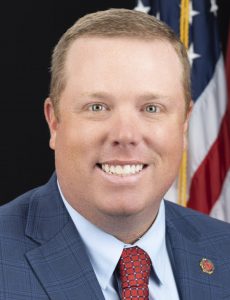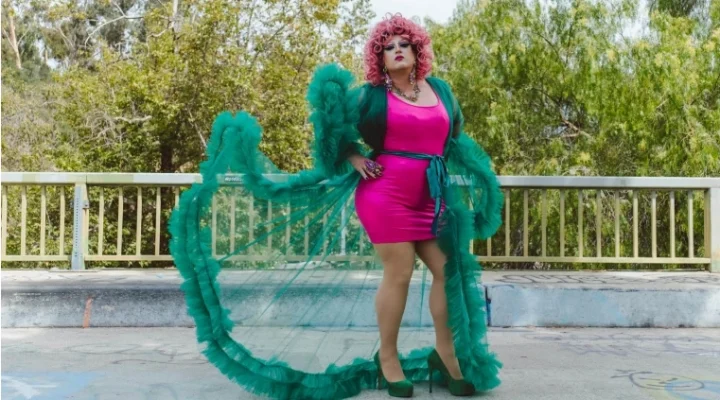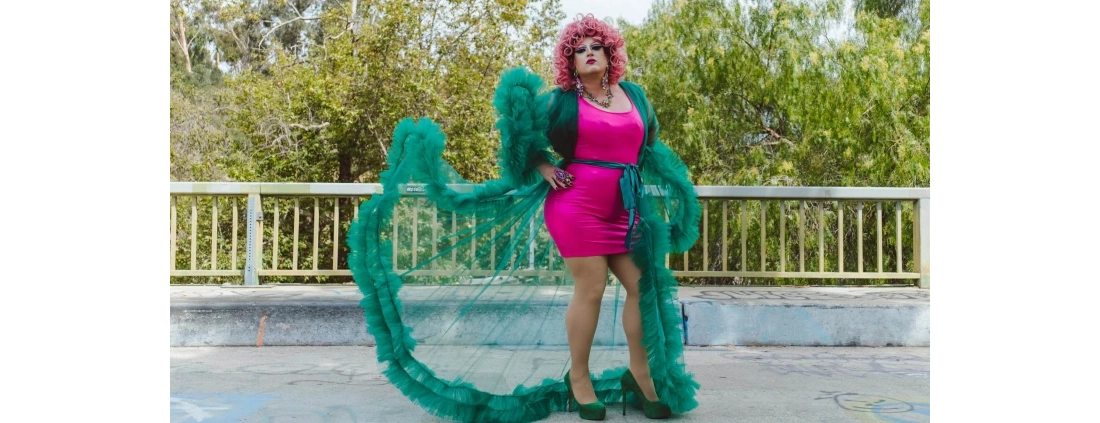Organizers of Tennessee’s Blount Pride Festival have been warned by a district attorney they could be charged with “criminal conduct” if Christian artist Flamy Grant performs at the festival Saturday, Sept. 2, as planned.
The singer’s appearance could violate Tennessee’s new anti-drag law, known as the Adult Entertainment Act, according to a letter written by Ryan K. Desmond, district attorney for the state’s 5th Judicial District.
Desmond was elected to the post last year. He is a trial lawyer who is a member of First United Methodist Church of Maryville, Tenn.

Ryan K. Desmond
In the letter, Desmond acknowledged a June 2 ruling by a federal judge in the Western District of Tennessee’s U.S. District Court that the anti-drag law is unconstitutional. Nonetheless, that ruling applies only to the 30th judicial district, he said. “It is my conclusion that violations of the AEA can and will be prosecuted by my office.”
The letter targeted both the festival and Matthew Blake Lovegood, the singer-songwriter who performs as Flamy Grant.
In response, the American Civil Liberties Union on Wednesday filed suit against Desmond in the District Court for the Eastern Division of Tennessee’s Northern Division that names Blount Pride, Inc. and Matthew Lovegood as plaintiffs. The lawsuit requests a temporary restraining order and preliminary injunction preventing Desmond from prosecuting the festival or its performers. Additionally, the filing requests a declaration of the ACA as unconstitutional.
Anti-drag legislation was ostensibly passed to protect children from explicit conduct; however, Tennessee already has state laws prohibiting obscenity or indecent exposure in front of minors. The Maryville, Tenn., festival is open to all ages and includes children’s activities. The organization’s Facebook page states the purpose of Blount Pride is “to uplift and celebrate the LGBTQ community of Blount County.”
Lovegood said opposition to the festival is simply an opportunity to “go after a queer event.”
“Drag is an ancient art form, and I have seen how it can help build community, hold space and connect people,” Lovegood said in a statement posted on the festival’s website. “I joined this lawsuit to ensure that I can continue performing in Tennessee, because I have seen how drag speaks to people who simply want to belong and be loved, making them feel safe and supported. That’s all I want my art to do.”
Despite writing the threatening letter, Desmond said in it that he “will not prematurely evaluate the facts or evidence related to a potential investigation into possible criminal conduct,” and that “it is certainly possible that the event in question will not violate any of the criminal statutes.”
He acknowledged the event is likely to draw protesters and counter protesters and said “all laws will be applied equally and justly to any involved parties.”
Lovegood does not intend to cancel the performance: “They booked me months ago.”
Related articles:
Drag is not what’s feared; it’s the people underneath the makeup whom we fear | Analysis by Cynthia Vacca Davis
Drag queens reading books to children are not the problem | Opinion by Susan Shaw
What Sean Feucht meant for evil, Flamy Grant experienced as good


